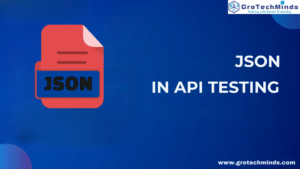

Regression Testing Tools
Regression testing is a software testing technique that checks that recent changes or upgrades to a software application do not impair its existing functionality. It involves rerunning previously executed test cases on the modified or updated codebase to identify any unexpected consequences or regressions caused by the modifications. The primary purpose of regression testing is to make sure that the software’s existing functionalities continue to function as expected after new code changes, bug fixes, or enhancements are implemented. This contributes to the software product’s long-term stability, dependability, and quality, providing that it matches the given criteria and provides a consistent user experience throughout subsequent versions.
Regression testing is necessary to ensure that recent modifications to a software application do not mistakenly break current features. Imagine updating your favourite app and discovering that previously working features no longer work as intended. Regression testing helps to avoid such instances by rerunning previously conducted test cases on the updated codebase, detecting any unwanted side effects or regressions early on. This method contributes to the stability and reliability of the program, delivering a consistent user experience across upgrades. Furthermore, regression testing facilitates continuous integration and deployment operations, allowing teams to securely release updates without concern of introducing new bugs.
In simple terms, regression testing is the process of double-checking your work to guarantee that you did not make any mistakes while making modifications to your product. It’s similar to checking a toy after it’s been repaired to make sure it still works properly before returning it to a youngster to play with. This allows developers to identify and correct errors or defects before they become difficult for users. Finally, regression testing helps maintain software running smoothly and makes sure upgrades improve, not disturb, the user experience.
Selenium is an open-source automation testing tool designed primarily for automating web applications. It includes a set of tools and modules for automating web browsers on many platforms, allowing testers to write strong and scalable automated tests for regression testing.
The test plan is our battle plan, outlining what we’ll test, how we’ll test it, and what resources we’ll need. We outline the scope and approach of our testing efforts. It not only defines what aspects of the software we’ll test but also how we’ll conduct those tests and what resources we’ll require for execution. This document acts as a guiding beacon, ensuring alignment and cohesion across the testing team while maximizing efficiency and effectiveness in our testing endeavors.
- Supports a wide range of programming languages, including Java, Python, and C#. Selenium’s versatility allows testers to develop automation scripts in languages they are familiar with, increasing efficiency and flexibility in test automation projects.
- Allows testing across multiple browsers and operating systems: Selenium allows testers to guarantee that a browser is compatible by running tests on a variety of browsers, including Chrome, Firefox, and Edge, as well as operating systems such as Windows, Mac OS, and Linux.
- Offers an extensive collection of tools for web element identification and interaction: Selenium provides extensive APIs and methods for locating and interacting with web items, allowing testers to properly replicate user activities during automated testing.
- Works well with multiple testing frameworks and continuous integration systems. Selenium connects smoothly with popular testing frameworks such as TestNG and JUnit, as well as continuous integration systems such as Jenkins, allowing smooth automation workflows inside the development ecosystem.
JUnit is a popular Java framework for creating and running unit tests. It provides a simple framework for developers to write and automate tests for particular units or parts of their Java program. JUnit’s broad set of annotations and assertion methods makes it easier to create powerful test suites that validate code logic and behaviour.
- A simple and user-friendly framework for creating Java test cases: JUnit’s simple syntax and annotations make it easy for developers of all skill levels to write and run unit tests in Java.
- Tags can be used to define test methods and suites. Annotations like @Test, @Before, and @After let developers structure and manage the execution of test cases within test classes, improving code readability and maintenance.
- JUnit provides statements for checking predicted outcomes, such as assertEquals and assertTrue, which assist developers assure the validity of their code under test.
- JUnit integrates carefully with common build tools like Maven and Gradle, allowing for automated test execution during the development process.
TestNG is a Java testing framework which allows a wide range of tests, including regression testing. It offers extensive capabilities and functionalities beyond those provided by JUnit, making it the preferred option of many Java developers and testers. TestNG allows the building of flexible and advanced test suites, including parallel execution, parameterization, and test dependencies, among other things.
- TestNG offers advanced features such as parameters, dependency management, and parallel execution, allowing testers to create more in-depth and efficient test suites.
- TestNG’s grouping feature allows testers to organise test methods into logical groups, allowing for selective run and greater control over the test execution flow.
- Provides broad reporting tools for test result analysis: TestNG creates broad HTML reports containing full information on test execution status, such as pass/fail statuses, execution times, and error details, allowing for in-depth analysis and debugging.
- TestNG interfaces smoothly with major Java IDEs such as Eclipse and IntelliJ IDEA, giving developers a familiar testing environment and allowing for efficient test development and execution.
Cucumber is a BDD tool that allows you to create functional specifications in plain language. It promotes stakeholder engagement by allowing them to construct scenarios in natural language formats like Gherkin syntax, which can then be automated and run as tests. Cucumber helps to bridge the gap between business needs and technical implementation, resulting in improved communication and understanding across cross-functional teams.
- Allows stakeholders to collaborate by writing situations in natural language. Cucumber’s feature files allow testers, developers, and other stakeholders to work effectively together by expressing practical specifications in plain, human-readable language, resulting in improved interaction and understanding of requirements.
- Supports an array of programming languages, including Java, Ruby, and JavaScript Cucumber supports multiple programming languages, allowing teams to write automated tests in the language that is most comfortable for them, allowing cross-functional collaboration.
- Cucumber easily integrates with popular testing frameworks such as JUnit and TestNG for test execution, allowing Cucumber tests to be carried out alongside other automated tests within the same test suite, thereby improving coverage and efficiency.
- Cucumber creates detailed reports for test result display in a variety of formats, including HTML and JSON, giving stakeholders clear insights into test execution results and allowing them to make informed decisions.
Jenkins is an open-source automation server that manages continuous integration and continuous delivery (CI/CD) pipelines, including regression testing. It allows you to automate many aspects of the software development process, such as developing, testing, and deploying apps. Jenkins allows teams to create efficient and reliable CI/CD workflows, allowing for immediate feedback and early discovery of regressions.
- Automatically builds, tests, and delivers software projects. Jenkins automates several stages of the software development lifecycle, such as building, testing, and deployment, which streamlines the CI/CD process and reduces manual involvement.
- Provides an array of plugins for connecting with various tools and technologies. Jenkins’ large plugin ecosystem supports integration with a wide range of tools and technologies, allowing for seamless automation across several development stacks and environments.
- Jenkins allows teams to schedule and automatically trigger regression test suites as part of CI/CD pipelines, ensuring continuous validation of application changes and preventing regressions from reaching production.
- Jenkins has strong logging and reporting tools that allow teams to monitor test execution in real time, troubleshoot problems, and produce full reports for post-run analysis.
SoapUI is a testing tool created primarily for API testing, including regression testing for SOAP and RESTful web services. It offers an easy-to-use interface for building, carrying out, and managing API test cases, allowing testers to check the functionality, performance, and security of their APIs. SoapUI supports both SOAP and REST protocols, giving it an adaptable tool for testing a variety of API technologies and implementations.
- SoapUI supports both SOAP and REST protocols for API testing, allowing testers to do complete testing of SOAP and RESTful web services across a variety of API technologies and protocols.
- Offers a user-friendly interface for developing and executing API test cases: SoapUI’s user-friendly interface allows testers to rapidly build, execute, and maintain API test cases, even for complicated scenarios with many endpoints and data sets.
- SoapUI allows data-driven testing by allowing testers to parameterize API queries and responses with other data sources such as databases, spreadsheets, and files, hence increasing test coverage and variety.
- SoapUI interfaces perfectly with CI/CD technologies such as Jenkins, allowing for automated execution of API tests as part of continuous integration pipelines, resulting in early detection of faults and faster feedback loops.
Postman is a working together platform for API development that includes rigorous testing capabilities such as regression. It offers a simple interface for designing, executing, and managing API queries and test scripts, allowing testers to check the functionality, performance, and security of their APIs. Postman offers automated testing workflows with collections and environments, allowing you to create reusable test scenarios and configure many test environments.
- Postman offers a user-friendly interface for planning, sending, and validating API queries, as well as the ability to develop and execute test scripts to automate API testing workflows.
- Postman’s collections and environments feature helps testers organise and automate API test suites, allowing them to create reusable test scenarios and configure various test settings.
- Postman has functionality for mocking APIs and resembling answers, allowing testers to test in isolated environments and evaluate application behaviour under diverse conditions.
- Postman effortlessly connects with CI/CD pipelines for automated regression testing, allowing for the automated execution of API tests as part of continuous integration workflows, assuring API stability and dependability throughout the development process.
TestComplete is a complete testing platform that allows for a wide range of tests, including regression testing for online, mobile, and desktop apps. It provides a variety of tools and functionalities for developing, performing, and managing automated tests, making it a versatile solution for testing across various platforms and technologies.
- Provides record-and-playback capabilities to create test scripts quickly: TestComplete’s record-and-playback capability helps testers to quickly construct automated test scripts by recording user interactions with the application under test, saving time and effort.
- TestComplete provides keyword-driven testing and scripting in many computer languages, allowing for greater flexibility and scalability in test automation initiatives.
- Provides strong object recognition for testing UI elements. TestComplete’s string object recognition engine correctly detects and interacts with UI elements across several platforms and technologies, providing dependable and robust test automation.
- Integrates with test management and CI/CD technologies to provide seamless automation: TestComplete interacts seamlessly with test management tools and CI/CD pipelines, allowing for full automation of the testing process, from test design and execution to result analysis and reporting.
Appium is an open-source automation tool for mobile applications that supports both Android and iOS platforms and includes regression testing. It offers a platform-independent solution for automating native, hybrid, and mobile web apps, allowing testers to write and run automated tests on a variety of mobile devices and operating systems.
- Appium offers testing of a wide range of mobile applications, including native, hybrid, and mobile web apps, providing a uniform testing solution for mobile development projects.
- Supports many programming languages, including Java, Python, and JavaScript: Appium’s cross-platform support for common programming languages allows testers to take advantage of their existing skills and tools, increasing productivity and collaboration within the development team.
- Appium gives testers access to device-specific elements like GPS, camera, and accelerometer, allowing them to thoroughly test mobile applications across different devices and situations.
- Appium integrates seamlessly with popular testing frameworks and CI/CD pipelines to allow automated execution of mobile tests as part of continuous integration workflows, ensuring the quality and reliability of mobile applications.
LoadRunner is a performance testing tool that also supports regression testing of web applications under load. It allows testers to simulate thousands of concurrent users in order to stress test web applications, providing that they can withstand large loads while maintaining speed. LoadRunner features regression testing functionality to check that recent changes to the application code did not cause performance regressions or affect system performance.
- Allows stress testing web applications by simulating thousands of concurrent users. LoadRunner’s virtual user technology allows testers to replicate realistic user loads and interactions, allowing for thorough stress testing of web apps across several usage situations.
- Offers regression testing functionality to verify application stability under load: LoadRunner features regression testing tools, which allow testers to check application functionality and performance while under load, guaranteeing that new modifications do not cause regressions or performance decline.
- LoadRunner offers real-time monitoring and analysis tools for system performance metrics such as response time, throughput, and resource utilisation, allowing testers to quickly identify and resolve performance issues.
- Integrates with CI/CD processes to automate performance and regression testing. LoadRunner interacts smoothly with CI/CD pipelines, automating the running of performance and regression tests as part of continuous integration workflows that guarantee web application scalability, reliability, and performance.
Finally, selecting the appropriate regression testing tools is important for assuring the quality and reliability of your applications. With so many alternatives available, it’s critical to investigate and select solutions that match your individual testing requirements. By adding these technologies into your software testing process, you may improve workflows, save time and costs, and ultimately provide higher-quality products to your customers. Do not hesitate to visit our website for more information on the greatest regression testing tools on the market. Improve your testing techniques now and take your software development process to new heights!
To sum up, regression testing is essential to the software development life cycle since it makes sure that modifications to the code won’t adversely affect the functionality that already exists. Testers can increase accuracy and efficiency while saving time and effort by automating this process. We’ve gone over the definition, benefits, and best practices for using technologies like TestComplete and Selenium to expedite your regression testing.
Knowing about regression testing and becoming acquainted with the different tools available will definitely improve your testing abilities and marketability, regardless of whether you are an experienced software tester or just starting out in this sector then explore our program of Automation Testing in Software Testing. Regression testing can be automated to improve product quality, accelerate release cycles, and ultimately increase customer happiness.
Consult Us


















